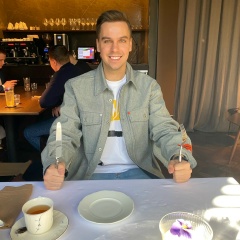С самым главным праздником — с Днем Победы! Для меня это и день скорби о павших и хлебнувших горя, и день памяти о героях — живых и мертвых. Распространенной стала формулировка: «нельзя гордиться войной». Не поспоришь! Войной — нельзя. Но нельзя не помнить о героизме, недостойно исключать это понятие из памяти. А героизм был в том, что люди не щадили себя, свою жизнь, защищая тех, кто слабее, детей, стариков, защищая свой дом, семью, народ, землю от фашистов, работая в тылу так, что умирали от перенапряжения сил. И в том, что, защитив, победив, люди проявляли милосердие к врагу, тоже героизм. Только одно дело, когда прошедшие через этот ад женщины отдавали платки согреться пленным. А другое, когда те, кто, слава Богу, ничего подобного на себе не испытал, говорят, что вообще не стоит рассказывать о героизме детям, дабы «не воспитывать в них агрессию». Исключить героизм из памяти — значит, приравнять к агрессии все вышеназванное. Это неправда и неблагодарность. От них добра не может быть. А значит, не может быть и мира. Как рассказывать — важный вопрос, не с залихватской развязностью, конечно. Но есть столько хороших фильмов и книг, в основном старых, в которых с подлинной глубиной и болью поднимаются самые сложные и самые трагичные вопросы. Не считаю правильным, чтобы память о войне хранилась только в семьях. Я рада, что в этот день на улице можно сказать «с Днем Победы!» совершенно незнакомому человеку и слышать те же слова от незнакомых людей. И мне очень жаль, что в этом году по объективным причинам нельзя возложить цветы к памятникам, нет парада и шествия бессмертного полка в привычном формате.
With the most important holiday - Victory Day! For me, this is the day of sorrow for the fallen and sore grief, and the day of remembrance of the heroes - the living and the dead. The wording became widespread: “one cannot be proud of a war”. Can not argue! War is impossible. But one cannot but remember heroism, it is unworthy to exclude this concept from memory. And heroism was that people did not spare themselves, their lives, protecting those who are weaker, children, the elderly, protecting their home, family, people, land from the Nazis, working in the rear so that they died from overstrain of forces. And in that, having defended, defeated, people showed mercy to the enemy, also heroism. Only one thing, when women who went through this hell gave handkerchiefs to warm captives. And another thing, when those who, thank God, have not experienced anything like this on their own, say that it’s not worth talking about children’s heroism in order to “not bring up aggression in them”. To exclude heroism from memory means to equate all the above with aggression. This is untruth and ingratitude. There can be no good from them. So, there can be no peace. How to tell is an important issue, not with overwhelming swagger, of course. But there are so many good films and books, mostly old ones, in which the most difficult and most tragic questions are raised with genuine depth and pain. I do not think it is right that the memory of the war was kept only in families. I am glad that on this day on the street you can say "Happy Victory Day!" a complete stranger and hear the same words from strangers. And I am very sorry that this year, for objective reasons, you can’t lay flowers at the monuments, there is no parade and procession of the immortal regiment in the usual format.
У записи 23 лайков,
2 репостов,
280 просмотров.
2 репостов,
280 просмотров.
Эту запись оставил(а) на своей стене Екатерина Скворцова









































![Марина Любас [ и ] Марина Любас [ и ]](https://sun9-24.vkuserphoto.ru/s/v1/ig2/11VHwOrgQnrdJrHkTCP1FRarX6LeNGJaD961cxQn9llDZ0o2GkEhASZQJNB2LQETC9JimikBI0XGXPr4IMYBj0F_.jpg?quality=95&crop=0,317,1920,1920&as=32x32,48x48,72x72,108x108,160x160,240x240,360x360,480x480,540x540,640x640,720x720,1080x1080,1280x1280,1440x1440&ava=1&cs=200x200)


